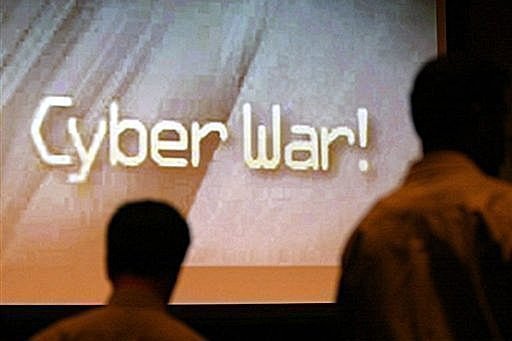Related article and video: – Air Force Aims for ‘Full Control’ of ‘Any and All’ Computers
WASHINGTON, June 30 (UPI) — The U.S. military is looking for a contractor to patrol cyberspace, watching for warning signs of forthcoming terrorist attacks or other hostile activity on the Web.
“If someone wants to blow us up, we want to know about it,” Robert Hembrook, the deputy intelligence chief of the U.S. Army’s Fifth Signal Command in Mannheim, Germany, told United Press International.
(…and the place where you can read about any planned terrorist attack is the Internet, of course!)
In a solicitation posted on the Web last week, the command said it was looking for a contractor to provide “Internet awareness services” to support “force protection” — the term of art for the security of U.S. military installations and personnel.
“The purpose of the services will be to identify and assess stated and implied threat, antipathy, unrest and other contextual data relating to selected Internet domains,” says the solicitation.
Hembrook was tight-lipped about the proposal. “The more we talk about it, the less effective it will be,” he said. “If we didn’t have to put it out in public (to make the contract award), we wouldn’t have.”
He would not comment on the kinds of Internet sites the contractor would be directed to look at but acknowledged it would “not (be) far off” to assume violent Islamic extremists would be at the top of the list.
The solicitation says the successful contractor will “analyze various Web pages, chat rooms, blogs and other Internet domains to aggregate and assess data of interest,” adding, “The contractor will prioritize foreign-language domains that relate to specific areas of concern … (and) will also identify new Internet domains” that might relate to “specific local requirements” of the command.
Officials were keen to stress the contract covered only information that could be found by anyone with a computer and Internet connection.
“We’re not interested in being Big Brother,” said LeAnne MacAllister, chief spokeswoman for the command, which runs communications in Europe for the U.S. Army and the military’s joint commands there.
“I would not characterize it as monitoring,” added Hembrook. “This is a research tool gathering information that is already in the public domain.”
Experts say Islamic extremist groups like al-Qaida use the Web for propaganda and fundraising purposes.
________________________________________________________________________________
And these are the real terrorists:
– Government Insider: Bush Authorized 9/11 Attacks:
“This (9/11) was all planned. This was a government-ordered operation. Bush personally signed the order. He personally authorized the attacks. He is guilty of treason and mass murder.” -Stanley Hilton
– Rumsfeld: Why not another 9/11?:
In a newly-released tape of a 2006 neocon luncheon meeting featuring former War Secretary Donald Rumsfeld, attended by ex-military “message force multiplier” propaganda shills Lt. General Michael DeLong, David L. Grange, Donald W. Sheppard, James Marks, Rick Francona, Wayne Downing, Robert H. Scales and others, Rumsfeld declared that the American people lack “the maturity to recognize the seriousness of the ‘threats’” — and need another 9/11.
– USA Military Officers Challenge Official Account of September 11
____________________________________________________________________________________________
Although the extent to which it is employed in operational planning is less clear, most agree that important information about targeting and tactics can be gleaned from extremists’ public pronouncements.
Read moreU.S. Military to Patrol Internet

